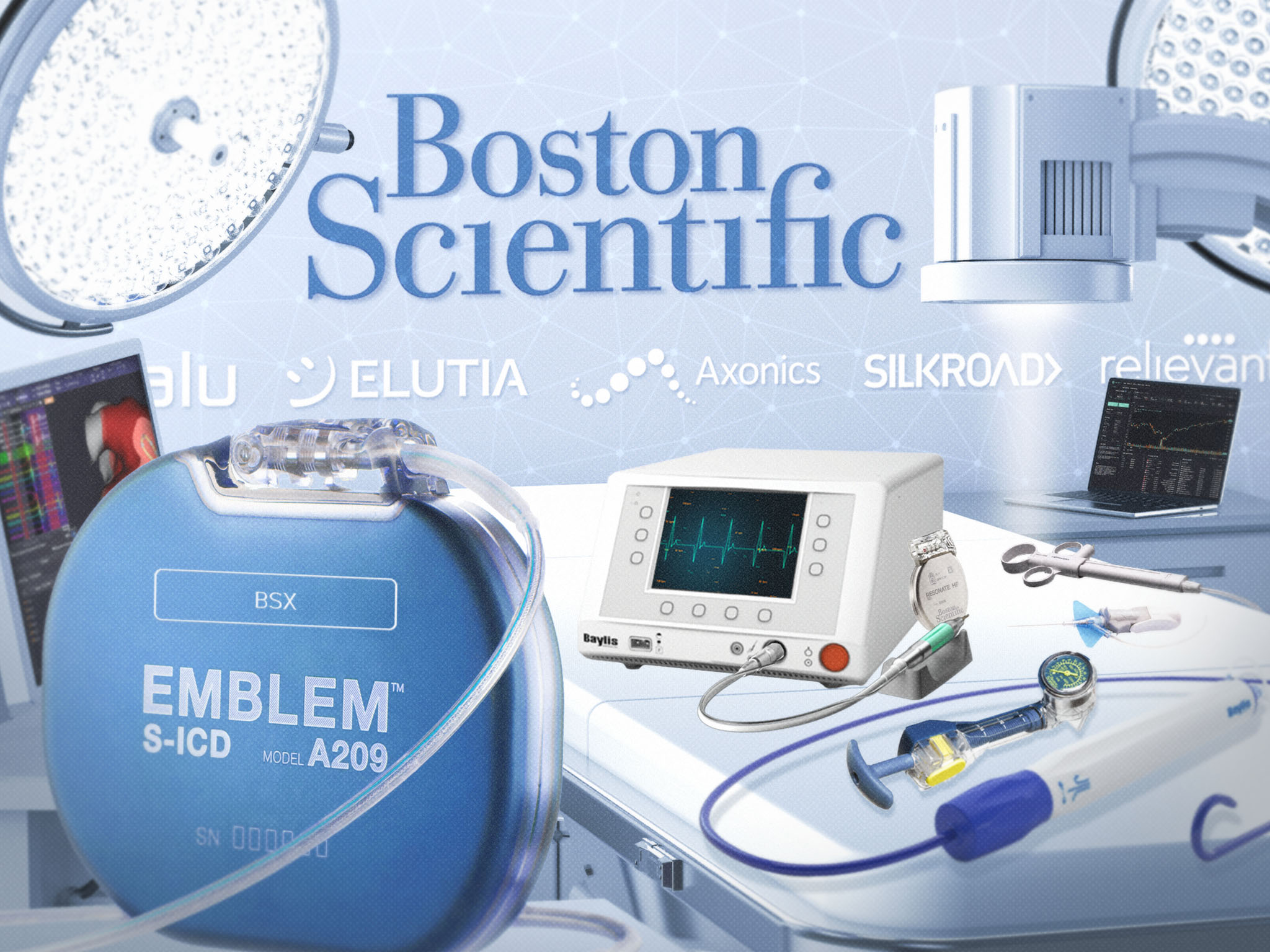For over a decade, medical device company Boston Scientific (NYSE: BSX) went on an acquisition spree, buying up dozens of companies that manufactured technologies for cardiovascular disease, vascular disorders, oncology, and neurology to bulk up its offerings.
The strategy to invest heavily in mergers and acquisitions is starting to pay off, as Americans are living longer and need the latest technology to treat their diseases and receive precise medical attention and care as their bodies age.
Boston Scientific’s strength lies in its cardiovascular segment, which is estimated by analysts to increase by 22% year over year or $13 billion out of the total $20 billion in its 2025 sales forecast.
The company’s Watchman product reported massive sales growth of 35% during the third quarter. The Watchman is an implant that is placed in the left atrial appendage of the heart and seals it off to prevent stroke-causing clots and also the need for lifelong blood thinners, and is used for 12% of the estimated five-million-patient market.
Surgeons prefer using the Watchman over the Amplatzer, a rival product manufactured by Abbott Laboratories, based on purchases made by hospitals. Currently, about nine out of 10 of these products are sold by Watchman, according to a physician survey from BTIG analyst Marie Thibault.
Boston Scientific is emerging as a top-notch medical device maker, especially among the top three manufacturers of cardiac devices, since it has a profitable record of “meaningful innovation and impressive operational chops,” wrote Debbie Wang, a senior equity analyst for Morningstar.
Devices from other acquisitions
The company’s sales are strong from other products that are related to its cardiovascular segment and from other divisions that were added to its portfolio when Boston Scientific purchased a series of smaller companies. One notable company is a recent acquisition – in September, Elutia’s BioEnvelope was acquired for $88 million. Elutia manufactures products that help patients avoid complications after surgery, such as infections. Unlike other companies, Boston Scientific can sell several of these products together to hospitals.
Revenue from medical, surgical, and urology is also expected to increase by 10% over a longer period of time, according to estimates by analysts. In 2024, Boston Scientific acquired Axonics for $3.7 billion, which manufactures an implantable device that provides relief for bladder and bowel disease, like an overactive bladder.
The company is expected to continue to grow with revenue estimated to increase by 11% next year, which could in turn boost margins, according to data from FactSet.
Boston Scientific’s management has said its top focus is on acquiring more companies instead of buying back shares of the company. Based on its history to follow this strategy, shareholders should expect earnings per share growth to rise by 20% each year, said Andrew Choi, a portfolio manager at Parnassus Investments, according to Barron’s.
Investors have been cautious, and shares of Boston, which is now a $146.5 billion market company, have risen by 16.7% during the past year, similar to Johnson & Johnson’s (NYSE: JNJ) increase of 18% while Medtronic (NYSE: MDT) and Stryker (NYSE: SYK) have seen their stock slump.
One advantage that Boston Scientific has is that it has pivoted away from relying on providing “traditional cardiac rhythm management and coronary stents, which are mature markets at this point, and has focused on new technologies in underpenetrated markets,” wrote Wang.
Another competitive edge that Boston Scientific has, aside from its wide profit margins, is its $3.4 billion of free cash flow, which will allow the company to invest in the latest medical technology.
The company has chosen medical devices and “tapped into novel platforms, including its drug-coated balloon, subcutaneous implantable defibrillator, left atrial appendage closure and atrial fibrillation ablation products,” she wrote. “The firm has also acquired adjacent technologies that open the door for it to compete in underpenetrated markets, including sacral neuromodulation for incontinence and intravascular lithotripsy for calcified coronary arteries. Despite trailing Medtronic on cardiac rhythm management, Boston remains in the game there, with launches of comparable technologies and respectable market share.”
Staying ahead of its rivals, such as Johnson & Johnson, Abbott Laboratories (NYSE: ABT), Stryker, and Medtronic always remains a priority.
Boston’s diversified portfolio is a winning advantage, but its competitors are also planning to “seek further consolidation to solidify their place as hospital vendors,” Wang wrote.
Investors will likely see stronger profit margins as Boston Scientific’s revenue is anticipated to increase by double digits as spending for healthcare continues to ramp up.




Comments